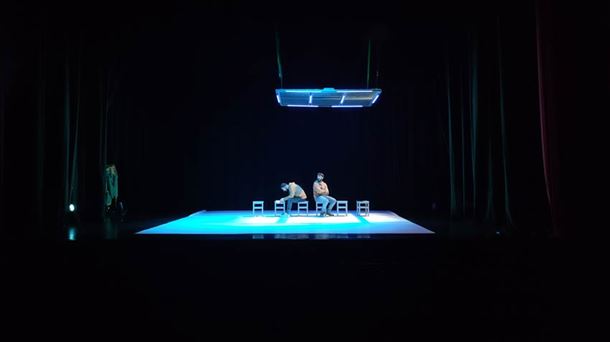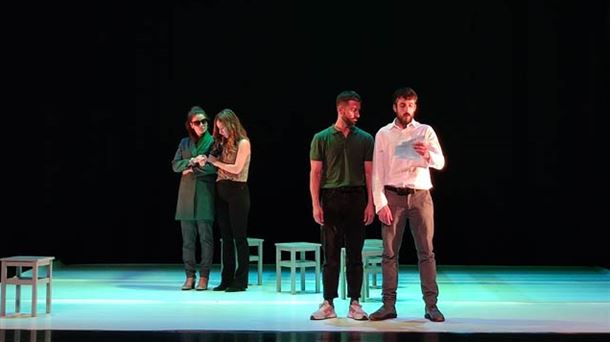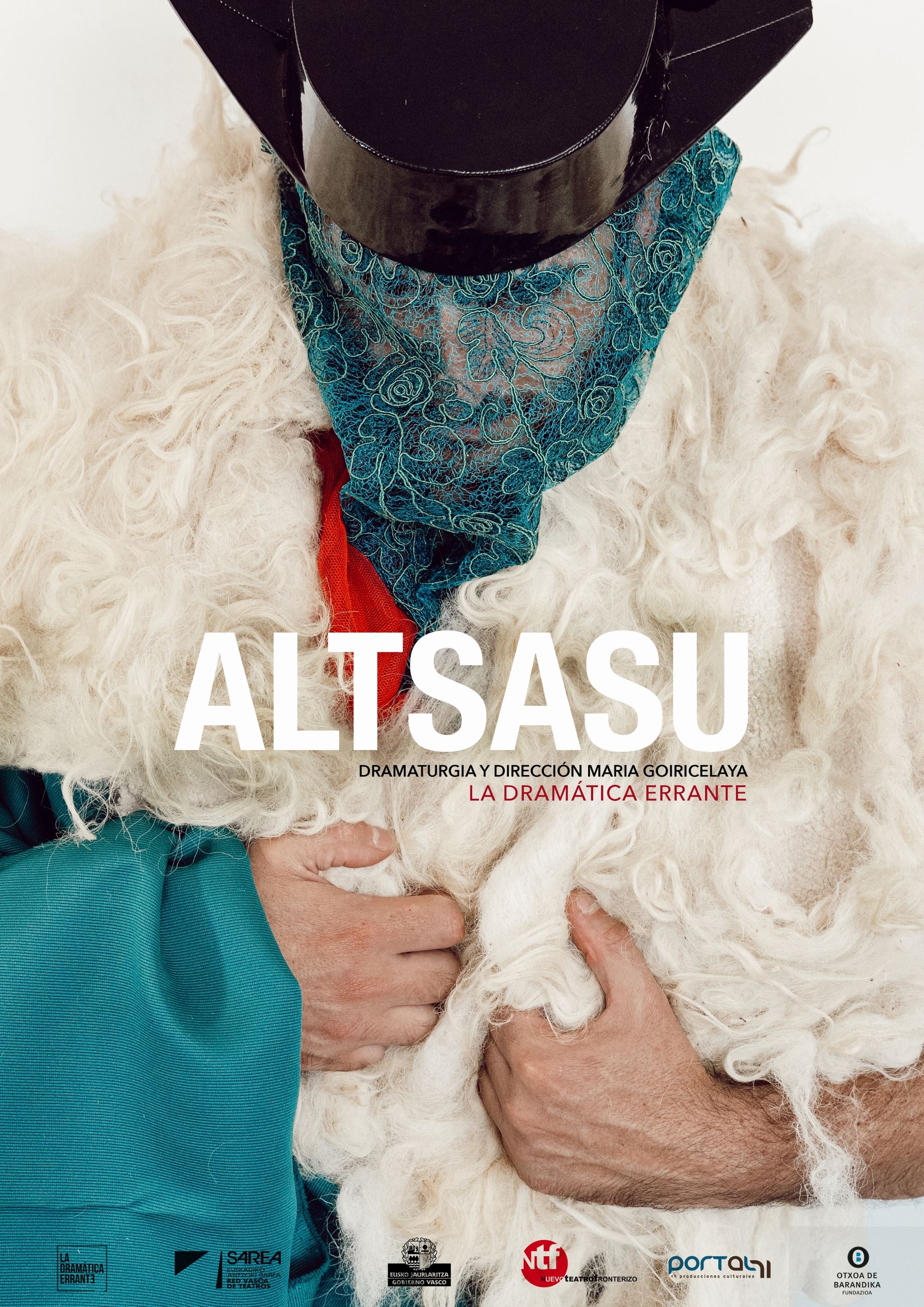What else can be said about the events that occurred outside the Koxka bar in Altsasu on October 15, 2016, their treatment, use and consequences? Obviously, many more things can and should be said, also from creation, if it aspires to discover unknown aspects about reality (it should, of course). Wounds that are ignored and not healed in depth end up supplying pain and iniquity. We should know.
The actress, playwright and Bilbao stage director María Goiricelaya (Ama Kuraia / Mother courage; Yerma…) now brings that episode from our recent history to the stage of the theater in Altsasu, a work written with the will to “heal wounds, to speak of forgiveness, conciliation and coexistence”.
Altsasu, in which Nagore González, Egoitz Sánchez, Aitor Borobia and Ane Pikaza perform, opens this Thursday, October 28, in Basque and on Friday, October 29, in Spanish at the Arriaga Theater in Bilbao.
We have spoken with Goiricelaya about the work.
Why bring the events of 2016 in Altsasu to the stage? What impulse or reflection does this work obey?
The idea of creating Altsasu was born within the “Cicatrizar” project of the Nuevo Teatro Fronterizo, one of the most important dramaturgy laboratories in the State. It is within this international project where, to talk about the “scars” in the Basque Country, it occurred to me that Altsasu it could be a good story to take to the stage.
That is the germ; the will to explore through theater the role of memory in the present, the will to heal wounds, to speak of forgiveness, conciliation, coexistence; of our future, in short.

Essays of the work ‘Altsasu’
How was the documentation process to write it?
The process has been long. This idea was born in 2018, before the series and the documentaries that have been made after about the case.
The times in theater are different and the writing process lasted about a year. During that time I worked with all kinds of information: news, images, publications, books and, of course, with the transcript of the trial.
It has been a challenge to collect the data, reconstruct situations, imagine others … and give it the necessary shape so that all this is a piece to tell on a stage.
What demands does the fact of dealing with real and truly sensitive situations impose on you when creating the work? On what basis are possible licenses on the facts, if any, justified?
There are licenses, of course. The show is based on the case and is based on documentary theater, but it is a fiction based on the events that occurred in Altsasu on October 15, 2016.
We have taken the licenses to give a voice to each and every protagonist, to show the pain of each of the parties involved and to propose to the public an exercise of empathy from different realities. The important thing for me was to expose the case, its ethical, philosophical, legal and psychological problems. That is “healing”: that each person can speak freely about what they have experienced and that we create a space for free debate.
Of course, within the demands to create has always been to treat the subject with the utmost respect and rigor, and the adaptation of events to this language that is theatrical. There are not as many resources here as in the audiovisual; the game is another, the poetics is another and the way to face these facts as well.
What spectator did you have in mind when writing the story? It is an episode of which people have a different level of knowledge, and I suppose that it will be vital to know who you are writing to in order to load the text with more or less contextual information …
I think of a critical and socially committed spectator and spectator. People who believe that our society can be better and our world more just. People who do not remain in the particular opinion or in the polarized event, but who are able to see the show from a healing perspective to the future.

The four actors, in the rehearsals of ‘Altsasu’
What will the spectator find on stage? What resources have you used to tell the story?
You will find a show that puts justice at the center to question its meaning and operation, and you will find two actresses and two actors playing many people to tell a story that I wish had never happened.
On stage there is hardly anything and, paradoxically, there is everything. There is laughter, fear, anger, tears, kisses, hugs … There is all that makes us equal beyond our political and ideological condition; all that which makes us human.
What future do you want and do you predict for the work?
Hopefully it can be seen in many places: here, in the Basque Country, where it already has a beautiful closed tour, and, of course, beyond our borders.
I believe that the theater has to ask us questions, shake us and not leave us indifferent, and Altsasu it does. It challenges us directly and pushes us to think, to speak and, to what is crucial for me as a society, to also think about that other person in front of us.

‘Altsasu’
Mario Twitchell is an accomplished author and journalist, known for his insightful and thought-provoking writing on a wide range of topics including general and opinion. He currently works as a writer at 247 news agency, where he has established himself as a respected voice in the industry.











